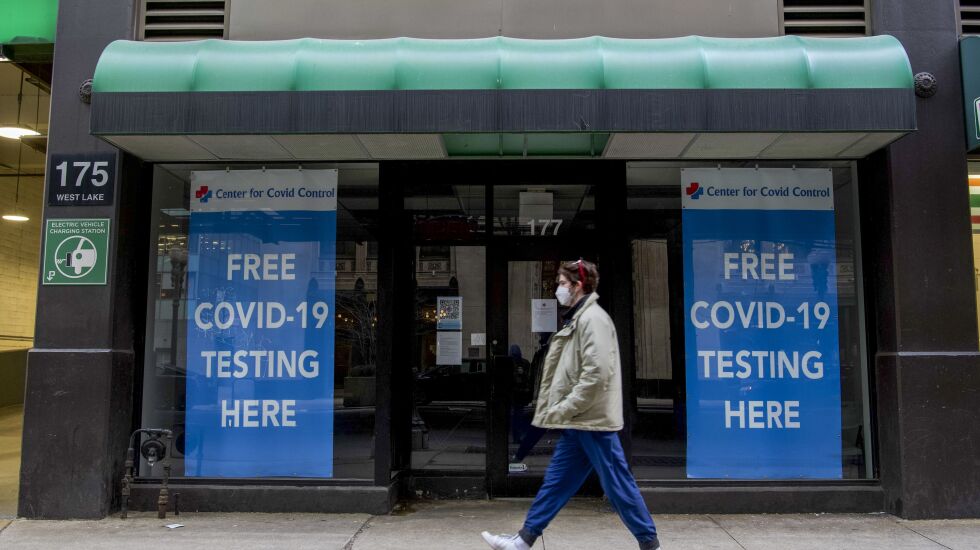
A little over three years after the coronavirus pandemic began, Gov. J.B. Pritzker announced the state’s public health emergency will end Thursday.
While infectious disease experts emphasize that people can still get COVID, it does change residents’ access to free tests.
During the pandemic, complimentary COVID at-home and in-person tests have been available. But insurance companies — excluding Medicaid— will no longer be required to provide them for free once the public health emergency ends.
What does a public health emergency mean?
A public health emergency is used to bypass the typical channel of funding approval by Congress, said Dr. Emily Landon, an infectious disease specialist at the University of Chicago. During COVID, this funding provided for testing, vaccinations and treatment.
The government has yet to put in place a permanent solution to replace the health emergency, Landon said.
“The point of having these public health emergencies is to get fast funding, but then (we) expect the government to step in and make a plan for the long term,” Landon said.
If a new COVID variant emerged — like Omicron did in late 2021 — the government would once again rely on emergency funding since it may not have a stockpile of COVID treatment drugs, such as Paxlovid, or tests, Landon said.
“The government has been touting the tools that have been created in order to make COVID more of a nuisance than an emergency for most patients,” Landon said. But... “we don’t have an alternate way of paying for these things. So these tools are not as useful if people can’t access them.”
What to do before May 11
Before the public health emergency ends, you can still order free COVID tests — four per household — to be mailed to you regardless of insurance status through covid.gov/tests.
People with medicare or private insurance can go to most pharmacies and get at-home COVID tests for free. Each person on your insurance plan is allowed to get eight tests a month.
Tips for after the public health emergency ends
After Thursday, Medicare and Medicaid will still pay for lab-based PCR tests, and some locations will still provide free testing through leftover funding. Private insurance companies may charge co-pays for lab tests.
Medicaid will also continue to pay for at-home tests.
Landon urges people who feel sick — even if you think it’s just a cold — to get tested, especially if you are at higher risk for complications. People over 65, immunocompromised people and/or those who are overweight are classified as high risk.
Those who should be particularly vigilant about COVID after the end of the health emergency are also people who have limited access to health care.
“Even if you’re insured and healthy and you’re not worried about COVID today, a lack of this public health emergency declaration could lead to you having trouble getting what you need later,” Landon says.
Those who have a lower income or are uninsured may have a harder time receiving care if they get COVID, so Landon recommends stocking up on tests while they are free.
At-home tests do have an expiration date, so if the test is expired, Landon says spending the money to buy a test or going into a clinic or a doctor’s office to get tested is worth it before potentially needing a higher level of care and putting your health in jeopardy.
“Those individuals are going to be less likely to go and get tested for COVID at their doctor’s office,” Landon cautions. “If they’re less likely to get tested, then they’re less likely to get treated if they need it.”
“There is absolutely no difference in how bad COVID is today, and how it is on May 11,” Landon added. “We’re still seeing people die every day.”
Putting a plan in place now, before a potential infection, is crucial, Landon said. Reaching out to your insurance provider beforehand to see what is covered following May 11 and figuring out how to protect vulnerable groups in your life are important steps as well, she said.
Since the start of 2023 through May 2, Chicago has seen 32,610 recorded COVID diagnoses, 2,615 recorded hospitalizations and 108 recorded deaths. That brings up the city’s total since the start of the pandemic to 772,136 recorded cases.







